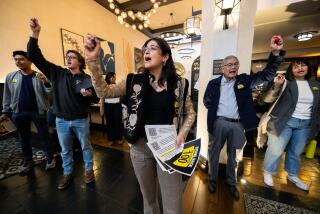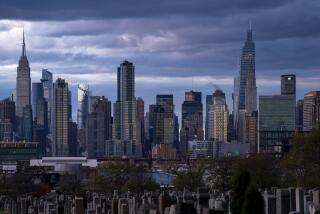Editorial: What the Supreme Court got right in its hotel register ruling
![Supreme Court Justice Sonia Sotomayor in Washington on June 17. Representing the court, Sotomayor wrote there was "an intolerable risk that searches [would] be used as a pretext to harass hotel operators and their guests."](https://ca-times.brightspotcdn.com/dims4/default/1c60fa0/2147483647/strip/true/crop/2048x1429+0+0/resize/1200x837!/quality/75/?url=https%3A%2F%2Fcalifornia-times-brightspot.s3.amazonaws.com%2F14%2F29%2F8782a676efc840862c91b3f00b8e%2Fla-ed-hotel-registers-privacy-supreme-court-20-001)
Supreme Court Justice Sonia Sotomayor in Washington on June 17. Representing the court, Sotomayor wrote there was “an intolerable risk that searches [would] be used as a pretext to harass hotel operators and their guests.”
In striking down a Los Angeles ordinance that requires hotel owners to turn over their registers to police at any time of the day or night, in the absence of a court order, the Supreme Court on Monday only indirectly protected the privacy of hotel guests. Under the 5-4 decision, owners — not guests — will be able to go to court to challenge a request for information about who is staying at a hotel or motel.
But indirect protection is better than no protection at all, and the decision should have the additional salutary effect of preventing police from harassing the owners of motels where they think prostitution, drug trafficking and other crimes might be taking place. By not allowing hotel owners to challenge requests for information in court, Justice Sonia Sotomayor wrote for the court, the ordinance created “an intolerable risk that searches authorized by it will exceed statutory limits, or be used as a pretext to harass hotel operators and their guests.”
The ruling was based on the 4th Amendment’s ban on unreasonable searches and seizures, which usually applies when police are searching for evidence of a crime. In theory, at least, the requests for hotel registers were part of a “regulatory” scheme similar to those involving searches of business premises for safety violations. In reality, the police were using their record inspection authority as a crime-fighting shortcut.
Even after Monday’s decision, many if not most hotel owners will agree to turn over the records and forgo the opportunity to challenge a request in court. Still, we hope that Sotomayor is correct that the mere possibility of judicial review will deter police from asking for records “10 times a day, every day, for three months, without any violation being found.” (Police will still be able to demand records, even without a court order, in emergencies.)
The ripple effect of greater police restraint will mean that fewer hotel guests will have their personal information — including credit card numbers — shared with law enforcement. But it was the privacy rights of hotel owners that was at issue in this case. That narrow focus was necessitated by a 1979 Supreme Court decision holding that individuals have no expectation of privacy in information they willingly turn over to a third party.
Yet, as Sotomayor herself observed three years ago, that doctrine is “ill suited to the digital age, in which people reveal a great deal of information about themselves to third parties in the course of carrying out mundane tasks.” Sooner rather than later, the court needs to adapt the privacy protections of the 4th Amendment to that reality.
Follow the Opinion section on Twitter @latimesopinion and Facebook
More to Read
A cure for the common opinion
Get thought-provoking perspectives with our weekly newsletter.
You may occasionally receive promotional content from the Los Angeles Times.






